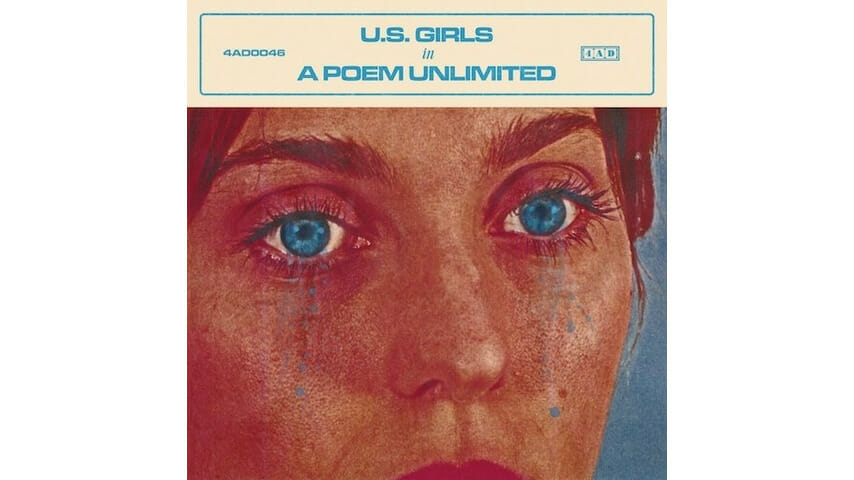U.S. Girls: In A Poem Unlimited

With titles like “Rage Of Plastics,” “Mad As Hell,” it quickly becomes apparent that on her sixth album, art-pop chanteuse Meg Remy, aka U.S. Girls, is feeling a little perturbed. Maybe it’s Trump, maybe it’s Weinstein, maybe it’s the whole #metoo shebang, but she’s even more fed-up than she was on 2015’s Half Free. An album filled with character sketches of women in less-than desirable situations, Half Free encased philandering partners, dead husbands and the women they wronged inside Remy’s artful mix of samples. The result was a kind of twisted, multi-author memoir told through avant-garde takes on golden oldies.
This time around, she’s traded in the samples for a live band (collaborating with instrumental collective the Cosmic Range) and left behind the Ronettes for the hedonistic sounds of disco and the 70s club scene. “I was 24/I was doing my time on the dance floor/It was all polyester/And leopard,” she sings at the top of “Rage Of Plastics,” setting the sweaty scene for us over cosmic, lava lamp guitar and squawking sax. She sounds in control, confident, but like so many other stories, this one ends in a familiar way, with Remy’s surrogate subject putting her plans on hold “for this refinery job and his babies.”
-

-

-

-

-

-

-

-

-

-

-

-

-

-

-

-

-

-

-

-

-

-

-

-

-

-

-

-

-

-

-

-

-

-

-

-

-

-

-

-








































